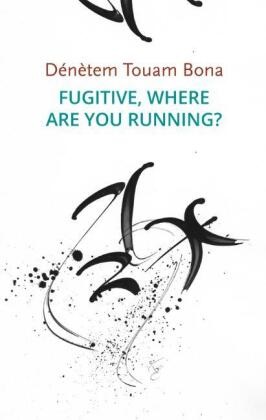Read more
Hunting stories will usually glorify the hunters, since it is the hunters who write the stories. In this book, Dénètem Touam Bona takes up the perspective of the hunted, using the concept of marronage to highlight the lives and creativity of colonized and subjugated peoples. In a format that blends travel diary, anthropological inquiry, and philosophical and literary reflection, he narrates the hidden history of fugues - those of the runaway slave, the deserting soldier, the clandestine migrant, and all those who challenged norms and forms of control. In the space of the fugue, in the folds and retreats of dense and muggy woods, runaway countercultures appeared and spread out, cultures whose organization and values were diametrically opposed to those of colonial societies.
Marronage, the art of disappearance, has never been a more timely topic: thwarting surveillance, profiling, and tracking by the police and by corporations; disappearing from databases; extending the forest's shadow by the click of a key. In our cyberconnected world, where control of individuals in real time is increasingly becoming the norm, we need to reinvent marronage and recognize the maroon as a universal figure of resistance.
Beyond its critical dimension, this book calls for a cosmo-poetics of refuge and aims at rehabilitating the power of dreams and poetry to ward off the confinement of minds and bodies.
List of contents
Foreword
Seloua Luste Boulbina
1. Future of the Maroni (Forest Secession)
2. The Art of the Fugue: from fugitive slaves to refugees
3. Manhunt: spectral analysis of slavery
4. "Heroic Land": spectography of the "border"
5. Mayotte, the impossibility of an island
6. Cosmo-poetics of the Refuge
7. Lianas Dreaming
Works Cited
Notes
Index
About the author
Dénètem Touam Bona is a writer, curator, and philosopher who lives in France and Réunion.
Summary
Hunting stories will usually glorify the hunters, since it is the hunters who write the stories. In this book, Dénètem Touam Bona takes up the perspective of the hunted, using the concept of marronage to highlight the lives and creativity of colonized and subjugated peoples. In a format that blends travel diary, anthropological inquiry, and philosophical and literary reflection, he narrates the hidden history of fugues - those of the runaway slave, the deserting soldier, the clandestine migrant, and all those who challenged norms and forms of control. In the space of the fugue, in the folds and retreats of dense and muggy woods, runaway countercultures appeared and spread out, cultures whose organization and values were diametrically opposed to those of colonial societies.
Marronage, the art of disappearance, has never been a more timely topic: thwarting surveillance, profiling, and tracking by the police and by corporations; disappearing from databases; extending the forest's shadow by the click of a key. In our cyberconnected world, where control of individuals in real time is increasingly becoming the norm, we need to reinvent marronage and recognize the maroon as a universal figure of resistance.
Beyond its critical dimension, this book calls for a cosmo-poetics of refuge and aims at rehabilitating the power of dreams and poetry to ward off the confinement of minds and bodies.
Report
"A brilliant exploration of the nuances, tensions, and radical possibilities of Blackness as told through the framework of fugitivity and marronage. Dénètem Touam Bona graciously invites us to cross temporal lines, geographic boundaries, and methodological conventions in this beautifully written book."
Damien M. Sojoyner, University of California
"Afropean anthropologist, philosopher, and art curator Dénètem Touam Bona is an original "border thinker" and "crosser" of geographic and conceptual boundaries working within a tradition of Caribbean historical poetics, notably represented by Édouard Glissant. He explores ideas of "fugue" and "refuge" in light of the experience of maroons or escaped slaves, key actors of the simultaneous expansion of freedom and industrial-scale chattel slavery in the Americas."
Geoffroy de Laforcade, Humanities

